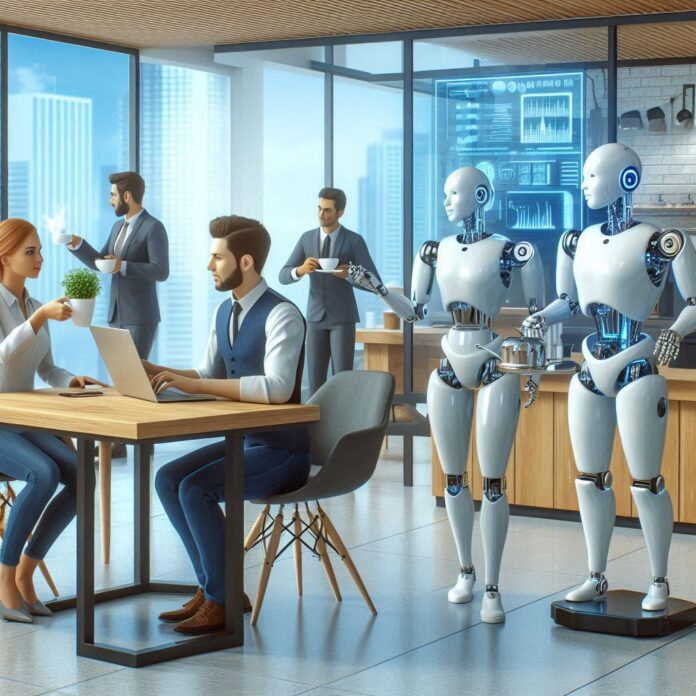Artificial intelligence (AI) is reshaping the global workforce landscape, influencing job roles, and automation trends, and creating new career opportunities across various industries. This article explores the profound impact of AI on jobs, workforce automation, and the emergence of new career paths, highlighting recent developments and future trends in the evolving job market.
Introduction to AI and Workforce Dynamics
Transformative Role of AI in Industries
AI technologies, including machine learning and robotics, automate routine tasks, enhance operational efficiency, and drive innovation in industries such as manufacturing, healthcare, finance, and retail. The integration of AI systems streamlines processes, optimizes resource allocation, and augments human capabilities in diverse professional environments.
Impact of AI on Job Roles and Workforce Automation
Automation of Routine and Repetitive Tasks
AI-driven automation displaces traditional roles that involve routine and repetitive tasks, such as data entry, customer service, and assembly line operations. Automation technologies improve productivity, reduce operational costs, and enable organizations to allocate human resources to higher-value, strategic initiatives.
Reskilling and Upskilling Initiatives
As AI automates certain job functions, reskilling and upskilling programs become crucial for workforce readiness. Employees acquire new skills in data analytics, AI programming, cybersecurity, and digital literacy to adapt to evolving job requirements and leverage AI technologies effectively.
Emerging Career Opportunities in AI
AI Specialists and Data Scientists
The demand for AI specialists, data scientists, and machine learning engineers surges as organizations prioritize data-driven decision-making and AI implementation. Professionals proficient in AI algorithms, predictive modeling, and neural networks drive innovation in AI research, development, and application.
Ethical AI and Compliance Experts
Emerging career roles in ethical AI and compliance management address regulatory frameworks, algorithmic bias, and ethical considerations in AI deployments. Professionals ensure responsible AI practices, transparency, and governance to mitigate risks and uphold ethical standards.
Future Trends and Challenges in AI Employment
Collaborative AI and Human-Machine Interaction
Future AI advancements focus on collaborative AI systems that augment human capabilities, rather than replacing jobs entirely. Human-machine interaction, cognitive computing, and AI-driven creativity redefine job roles, emphasizing collaboration, problem-solving, and innovation.
Addressing Socioeconomic Impacts and Inequality
AI’s impact on jobs raises concerns about socioeconomic inequality, job displacement, and workforce adaptation. Policy initiatives, universal basic income (UBI), and lifelong learning programs support displaced workers, foster economic resilience, and promote equitable access to AI-driven opportunities.
Conclusion
AI’s transformative impact on jobs and workforce automation accelerates technological innovation, enhances productivity, and creates new career pathways across industries. By embracing AI technologies, investing in workforce development, and promoting ethical AI practices, societies can navigate the evolving job market, foster inclusive growth, and prepare for the future of work in an AI-driven world.





